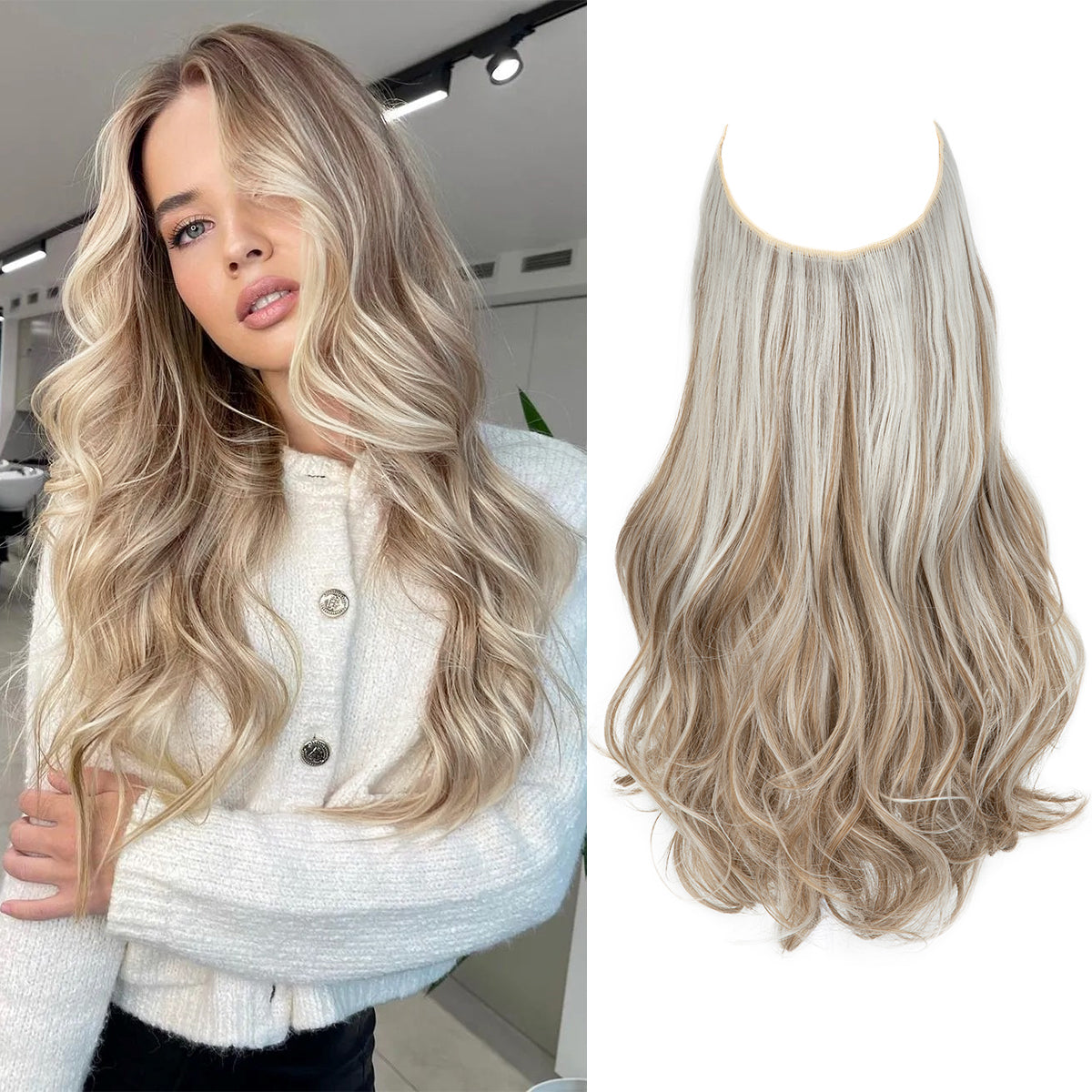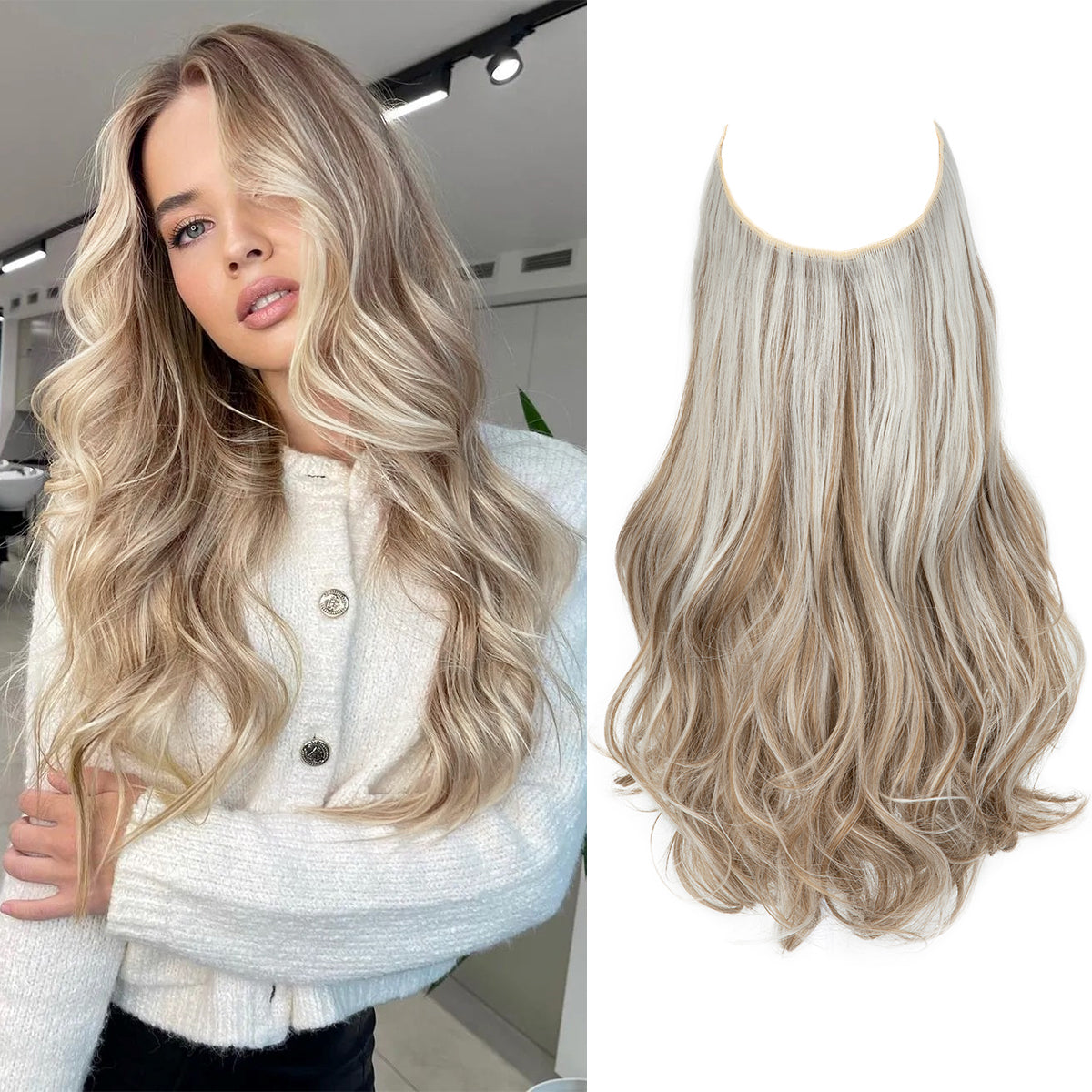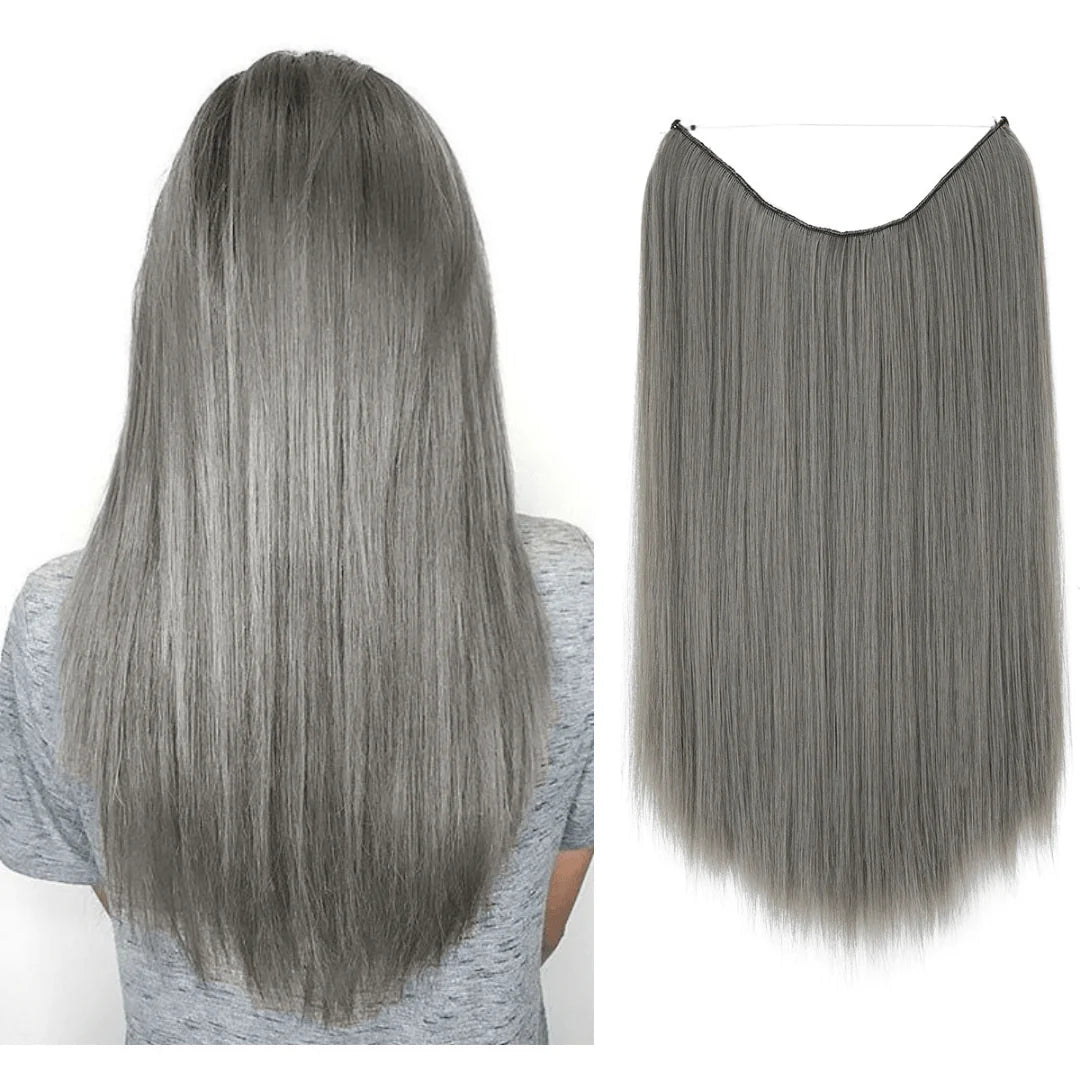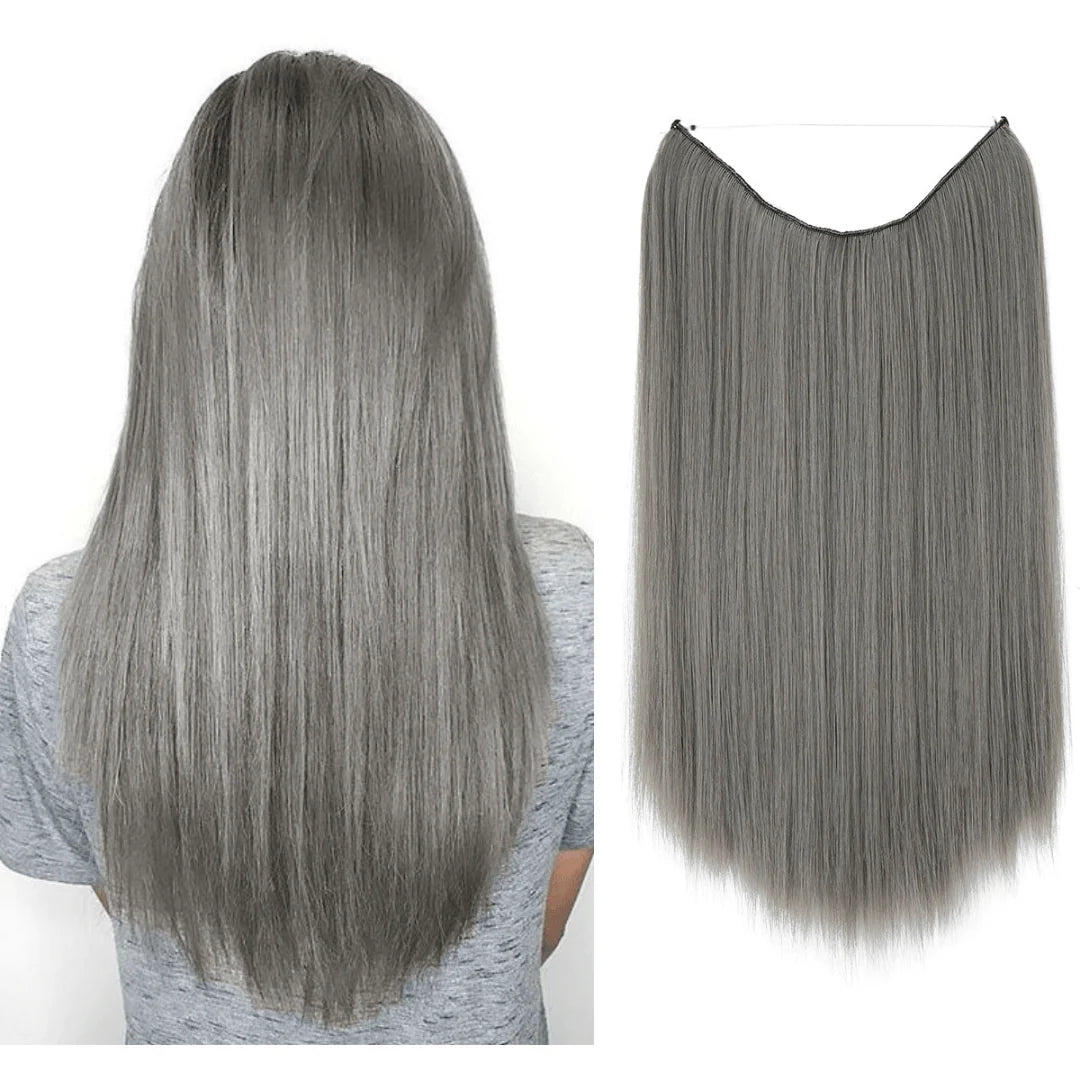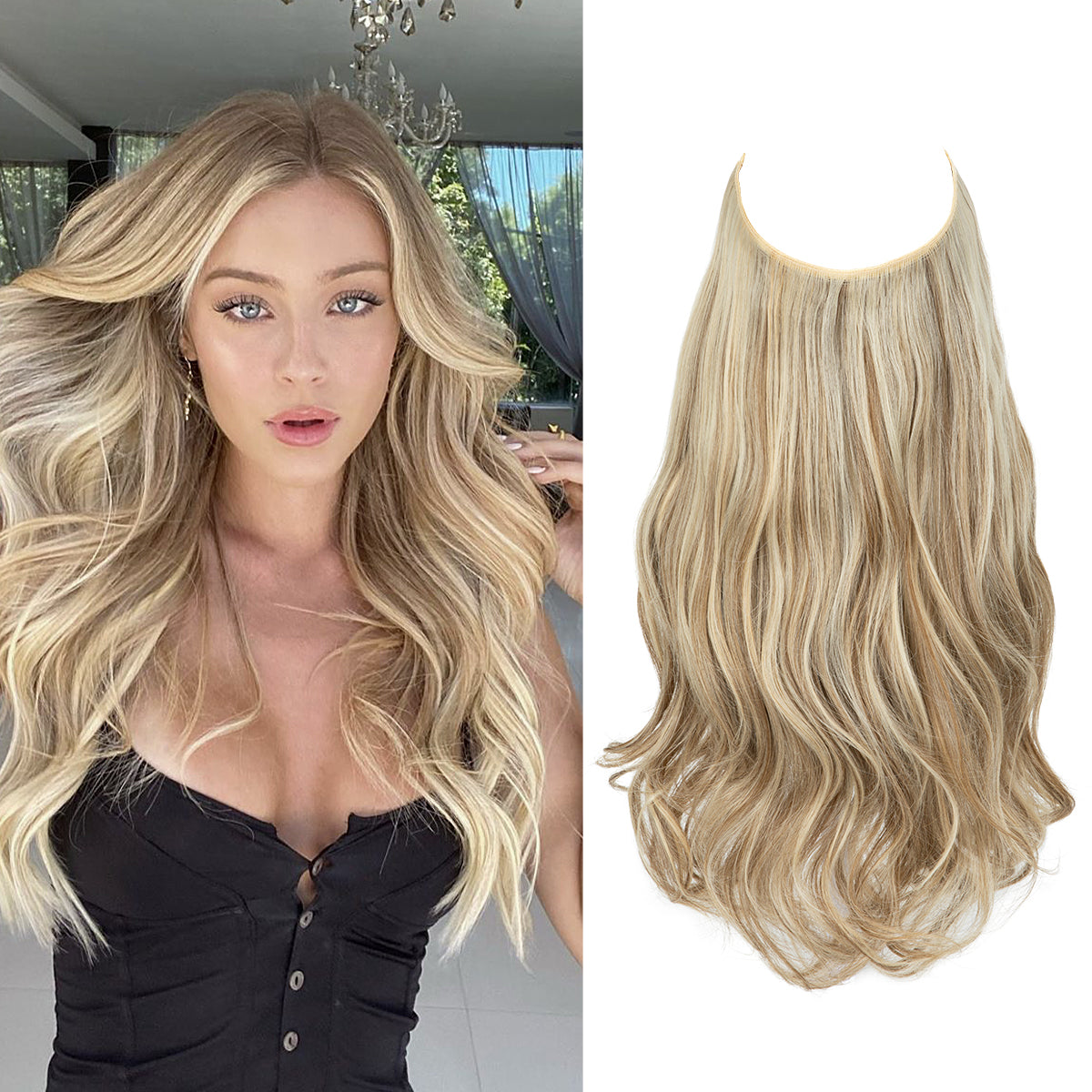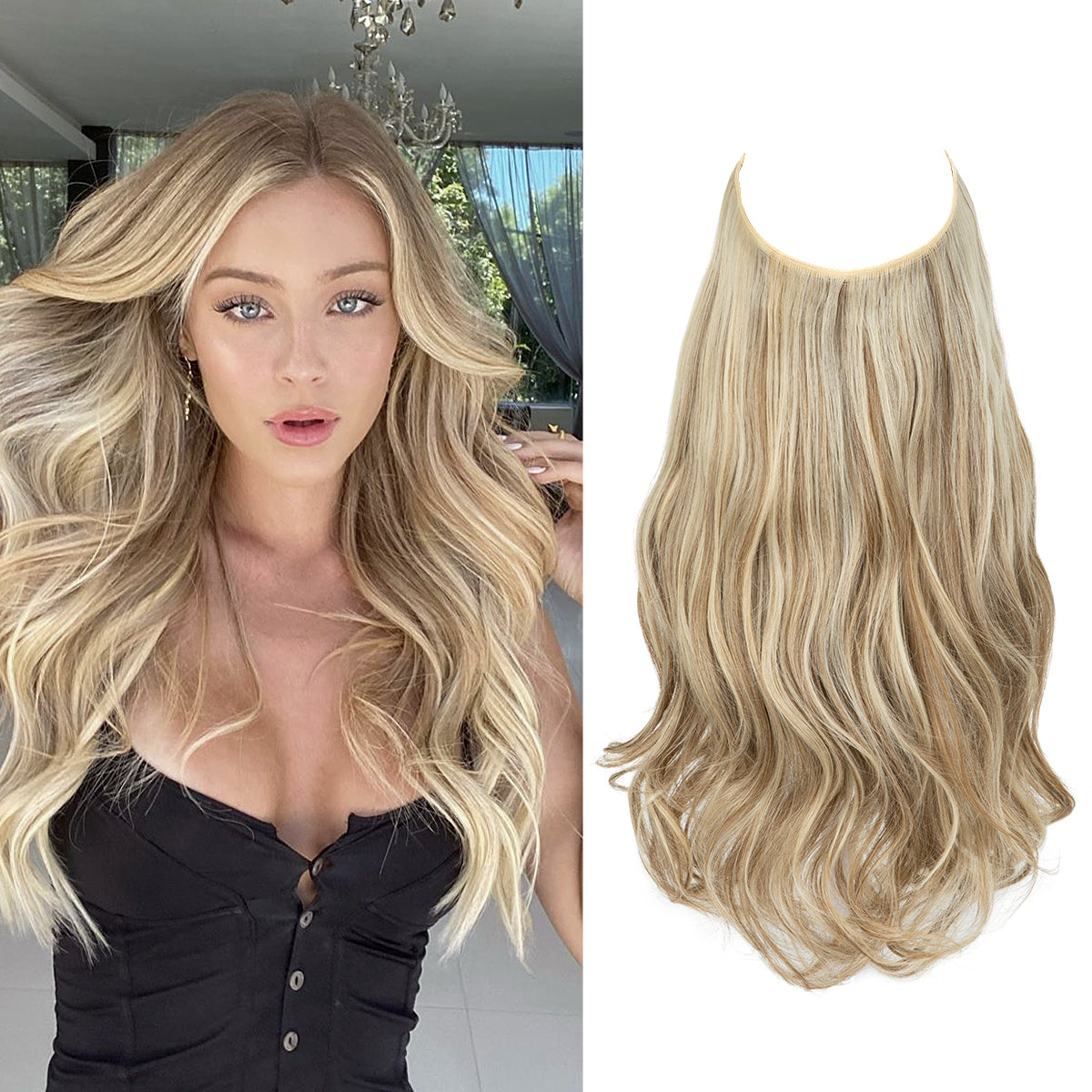How to Wash Halo Extensions
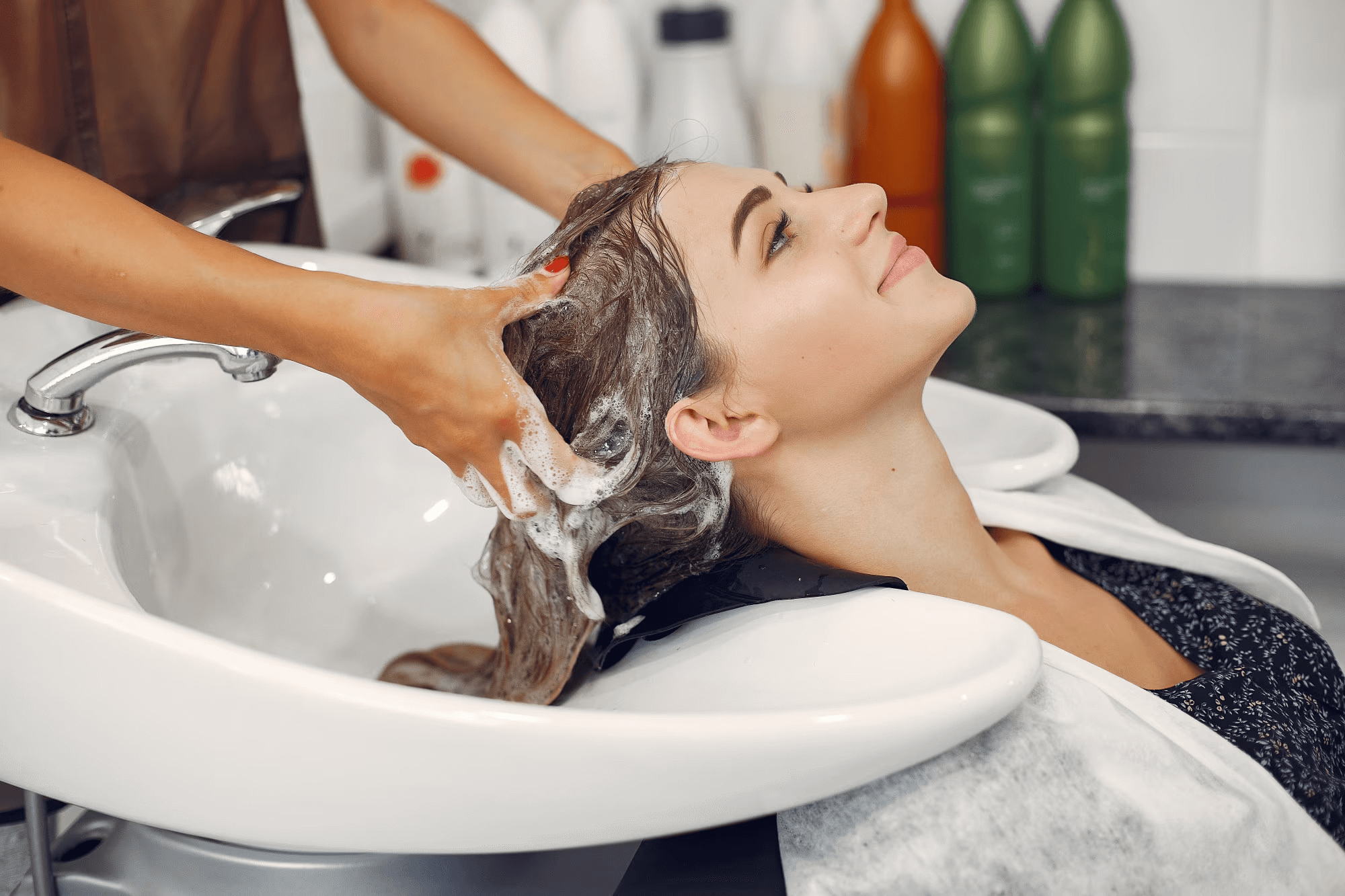

Your Halo just arrived—finally! You’ve got the volume, the length, and that instant glow-up. But here's the thing - getting your halo is only half the battle.
If you want it to keep looking amazing and lasting as long as possible, you've got to take care of it properly. And honestly, washing is where most people mess up.
In this guide, we’ll walk you through the essential steps for washing your halo hair extensions the right way.
Why Washing Your Halo Extensions Is Important
Halo extension maintenance through washing serves two essential purposes: to maintain their softness and freshness and extending their lifespan. Your extensions collect products, oils, and daily scents during each usage day. The accumulation of debris from not washing your extensions will cause the hair to feel weighty while appearing dull and potentially developing an unpleasant odor.
The regular washing process eliminates all of these making sure your extensions blend with your natural locks. The hair requires special care because it lacks the natural scalp oils that nourish your regular hair. Your extensions will stay smooth and fresh, and shiny only if you wash them correctly.
How to Wash Halo Hair Extensions
Washing your extensions the right way makes all the difference. This is how we keep ours soft, clean, and long-lasting, without damage.
Step #1. Detangle Gently
Before anything else, brush your halo extensions using a wide-tooth comb or a detangling brush. Start at the ends and work your way up. Always hold the top of the weft to avoid tugging or pulling.
Step #2. Use Lukewarm Water
Fill your sink or basin with lukewarm water—not hot, not cold. Hot water can dry out the hair. Cold water won’t clean it properly.
Step #3. Shampoo Softly
Use a sulfate-free shampoo, especially made for caring for hair extensions. Wet your halo and gently massage the shampoo in one direction, focusing on the weft area where buildup happens most. If the water looks dirty, rinse and repeat until it runs clear.
Step #4. Deep Condition
Apply a rich conditioner from the top to the ends. Let it sit for a few minutes to soak in, then rinse gently.
Step #5. Use a Hair Mask (Optional but Worth It)
If your halo extensions feel dry or dull, apply a hair mask after conditioning. Let it sit for 5–20 minutes, depending on how much hydration it needs. Rinse thoroughly.
Step #6. Towel Dry with Care
Squeeze out excess water—never rub. Lay your Halo flat on a towel or clip it onto a hanger. Gently pat it dry if needed.
Step #7. Prep for Styling
Before drying, mist it and apply a few drops of nourishing oil. This adds shine and helps protect the strands.
Step #8. Dry the Right Way
Let it air dry about 50–75% of the way. Then, blow-dry on low heat using a brush (a round brush works best). Always use a nozzle to smooth the cuticles. It might look fluffy at first—don’t worry. Once styled, it’ll be silky and smooth.
| Halo | Clip-in | Glue/Tape-in | Sew-in Weaves | |
|---|---|---|---|---|
| Damage | No damage sits on an invisible wire | Low risk if worn occasionally, but frequent use can cause breakage | Adhesive may weaken hair over time, especially with removal | Tension from braids can cause hair breakage |
| Installation Time | Under 1 minute | 5-15 minutes | 30-60 minutes—requires professional application | 2-4 hours—salon required |
| Comfort Level | Lightweight, no headaches | Can feel bulky with multiple wefts | Tape can feel tight at first | Can feel heavy and tight, especially after installation |
| Styling Freedom | Can be curled, straightened & styled easily | Very flexible for styling | Heat should be kept away from adhesive areas | Styling is limited by track placement |
| Best for Beginners | Easiest option—no skills required | Easy once placement is learned | Requires professional application & removal | Requires professional salon work |
- Clip-in extensions connect to your hair through small clips. The regular process of clipping and unclipping extensions produces root tension that results in hair breakage and thinning and potentially leads to complete baldness.
- Tape-ins function by sticking directly to your hair using adhesive strips. The adhesive process leads to dryness in hair strands and weakening of hair structures when used multiple times.
- Microbeads require crimping sections of your hair using small metal rings. The tight pressure from these products damages hair cuticles which results in breakage of the hair fibers.
- Glue-ins and bonded extensions use chemical adhesives for attachment. The same dryness issues that tapes cause also affect these products by damaging them over time.
- Weaves are sewn into hair that has been tightly braided. The hair loss risk from scalp tension exists when using this method, and the process becomes painful because of the strain.

What Care Products Should You Use
Choosing the right products for your halo extensions isn’t optional—it’s essential. They need gentler, more targeted care to stay healthy and beautiful.
What to Avoid
Stay away from shampoos and conditioners with sulfates, parabens, or alcohol. These ingredients strip away moisture, leaving the hair dry, tangled, and prone to shedding. Also, avoid products with heavy proteins—they can cause buildup and make your extensions feel stiff.
What to Use Instead
Use sulfate-free, paraben-free, and alcohol-free products that are made specifically for extensions. Look for light formulas that cleanse gently and keep the hair soft and smooth. A good extension-safe conditioner adds moisture and makes styling easier without weighing the hair down.
Our Go-To Recommendation
We highly recommend using products from our Extras Collection. These formulas are made keeping the essence of halo hair extensions in mind. They include just the right amount of silicone to lock in hydration, boost shine, and keep your hair feeling light, not greasy.
How Often Should You Wash Halo Extensions?
Every 10 to 20 wears or once every couple months. Extension hair doesn't produce oils like your natural hair, so overwashing will dry it out. Use lots of styling products? Wash more often, but stick with gentle, extension-safe products.
Signs You’re Overwashing or Undercleaning Your Halo Extensions
Overwashing:
- Feels dry or rough
- Loses shine
- Tangles easily
- Breaks or sheds more than usual
Underwashing
- Looks dull or greasy
- Feels sticky or heavy
- Has visible product buildup
- Smells off or musty
Let the look and feel of your Halo guide your routine—adjust as needed.
Interactive Care Guide
Here’s a breakdown on how often to wash your halo hair extensions based on how you wear them.
Classic / Layered Halo: Wash every 10–20 wears. Deep condition when needed.
Ponytail: Wash every 6–10 wears. Avoid heavy oils near the base.
Bangs / Fringe: Spot clean as needed. Keep conditioning light.
Fall / Crown: Wash every 10–15 wears. Use leave-in mist between washes.
Pro Tip: Store your extensions properly and brush them gently to extend their life between washes.
Final Thoughts
Taking care of your halo extensions really comes down to washing them right. Use good products, don't wash too often, and be gentle - that's how you keep them soft and shiny for months.
Skip the harsh stuff, stick to extension-safe products, and your halo will look and feel amazing every time you wear it.




